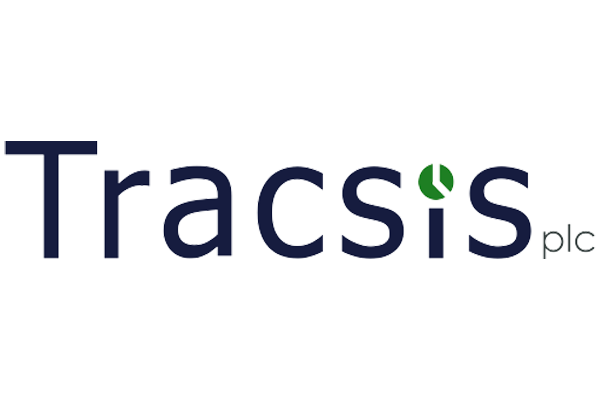20 Nov 2020
The popularity of Executive Coaching continues to soar.
The impact the Coronavirus pandemic has had on so many organisations of all kinds, industries and sizes has been immense. Learning how to work remotely initially appeared to be one of the biggest challenges to overcome, but as the pandemic has continued to evolve, so has the need for a very different type of leadership. And indeed, leadership team approach.
For some leaders, getting their head down and pushing forward appears to have been the preferred method of minimising the impact on their organisation. For some others, waiting to see how the situation evolves has been the preferred choice. This is rarely the best long-term choice, but it remains a choice nonetheless. Whilst for some other leaders, appointing an Executive Coach to guide them through the turbulence, uncertainty and anxiety, hopefully to a more healthy destination has been the preferred choice.
Executive Coaches are becoming alarmingly in-demand
As an Executive Coach you might expect me to espouse the many benefits of appointing an Executive Coach, a credible and competent one off course, can bring to your organisation. I know the benefits, but prefer to leave sharing those with you for another time.
For now, I wish to share with you a very different perspective. And that is the very real dangers and pitfalls of appointing an Executive Coaching to support you and/or your organisation through what continues to be an extremely challenging time.
1. So many Executive Coaches lack any intellectual or professional rigor. What do I mean?
They have read books on the subject, may event have undertaken some ‘Executive Coach Training’, even gained some form of certification in the subject, but in an industry which is not regulated in any shape or form, absolutely anybody can promote themselves as an Executive Coach.
Having served as an Executive Coach Standards Supervisor for a number of my global clients as part of their own Coach procurement vetting processes, there are occasions when I can quickly identify which books the applicant has read, simply from observing their approach. Reading books may demonstrate an eagerness or willingness to learn, but it certainly doesn’t mean the Executive Coach is credible, competent or a good fit for the organisation.
2. The Jack of All Trades Approach To Executive Coaching
Some Executive Coaches offer a niche solution, such as strategy development, sales leadership team specific support or in my case, commercially focused Emotional Intelligence Coaching for Leaders. A niche offering is precise, and the practitioner has often invested a number of years in exploring, learning and becoming technically proficient in their niche. This doesn’t always mean that the quality of their offering is fabulous, but it does tend to minimise the risk of a bad appointment.
Other Executive Coaches offer a little bit of everything. Some of this, a bit of that, oh, and you want that too? I can do that for you, approach. It is unfocused, disjointed and can often deliver little if any meaningful value for the trueing (and paying) client. If the client is not familiar with the subject being explored, the Emperor’s New Clothes can be the only value delivered. And if you have read that story, you will understand the risks involved.
There is a reason that I do not offer Executive Coaching on Quantum Physics. The reason? I don’t understand the first thing about the subject. Unfortunately, some Executive Coaches know a little bit about lots of subjects, but not a lot about a particular niche.
The message from me to you? Buyer Beware!
3. Developing a Dependency Rather Than Self Reliance
The role of an Executive Coach should involve enabling and equipping you to become more self-reliant. This can be achieved in a multitude of ways including, transferring knowledge and skills to you, accountable development commitments which are actively pursued as agreed, successfully delivering a challenging project to an agreed standard, timescale and budget. The list is endless.
Sadly, some Executive Coaches deliver their solution in a way that keeps them coming back for more. More fees that is.
I don’t condone this approach as surely, there must come a time when you the client has to, and should be open to, standing on your own two feet and pressing on, pushing forward, delivering increased value in whichever area you are focused on.In the same vein a young child learns to walk without its parents’ intervention, the same principle applies to you and your organisation when collaborating with an Executive Coach. Don’t let the Executive Coach stay a moment longer than they should. Learn to walk on your own. You will be so pleased when you do.
4. The Amazingly Cool Web Site
You know it and I know it too. Even the most amazing looking web site is most definitely not proof of the capability, competence or character of the Executive Coach who owns it.
Virtually anybody can hire a digital agency to design and launch a web site that looks first class. With offerings such as Wix and GoDaddy, an individual without any prior knowledge of web development can produce their own site. That’s how easy it is.
Remember though, a web site is just a ‘shop window’ for you to decide whether to make contact, or not. If the web site doesn’t include an abundance of verifiable client testimonials, from senior leaders of course, step back quickly. And take your wallet or purse with you.
5. Give Me Quick Answers & Solutions
It’s so easy for a well meaning Executive Coach to want to impress their client so much that they can’t stop themselves from giving quick answers and recommending speedy solutions.
Yes, there are times when a quick answer can be given either through prior experience of a similar or same situation, or a prudent review of data or evidence which points to a particular decision or recommendation. But apart from these instances, the best answers and recommendations are normally presented following a period of information review, and collaborative dialogue.
The quick answers aren’t always the best thought out answers. The most relevant recommendation is unlikely to be identified following a ‘I’m eager to please my paying client’ panic from an Executive Coach. No, you don’t want decisions, answers or solutions to take forever to be arrived at. There is a balance to be achieved. But if you aren’t partnered with an Executive Coach who can politely and assertively invite you to stop, to think, to consider, and then decide a way forward, you don’t have an Executive Coach. You have a submissive subordinate.



 See all Case Studies
See all Case Studies Get in touch
Get in touch